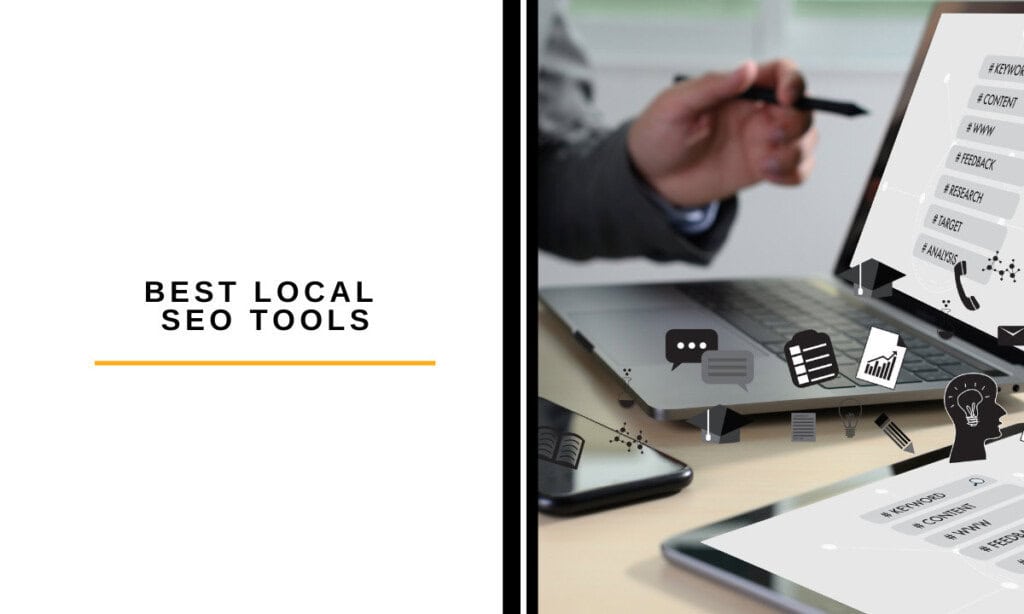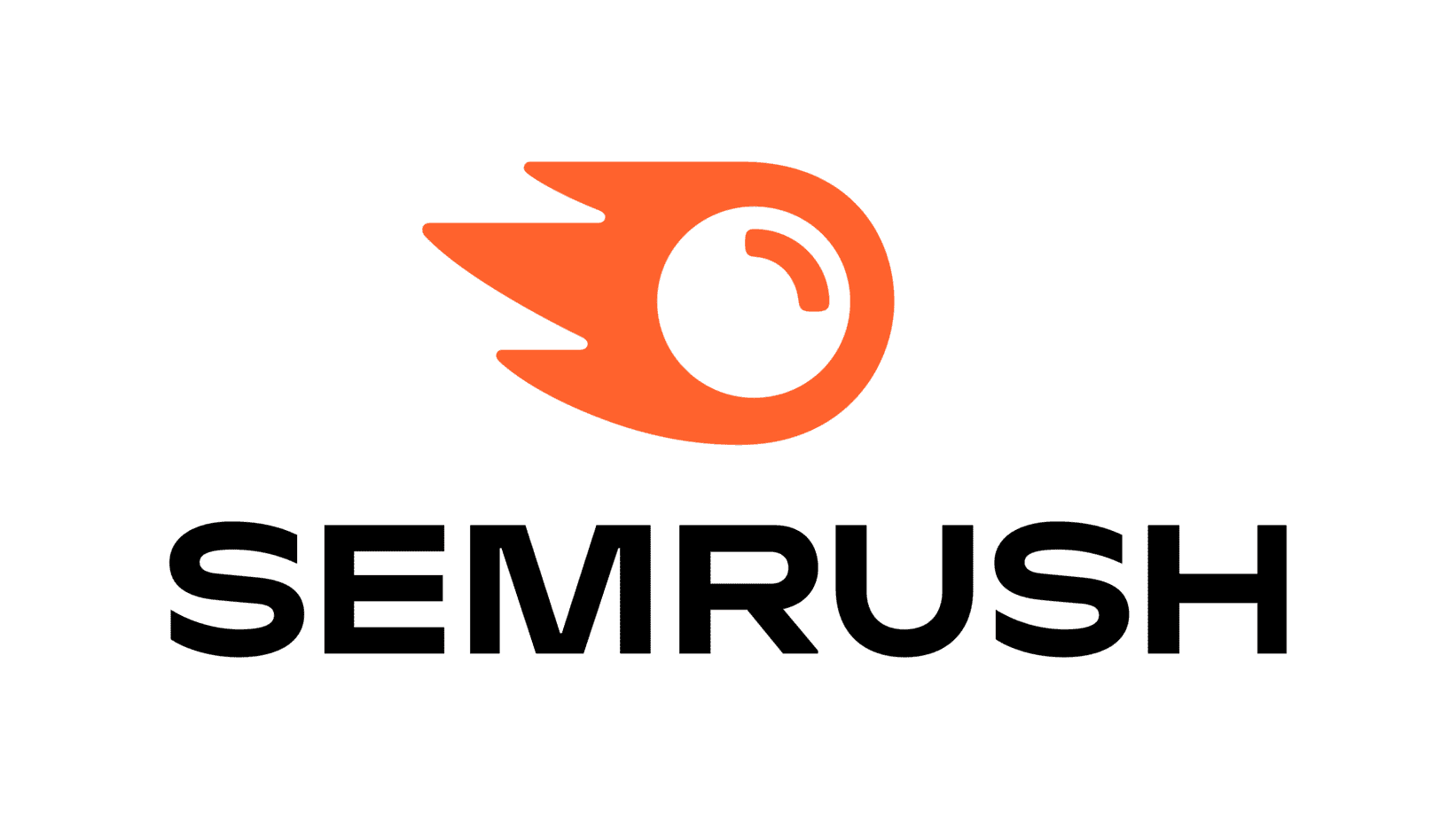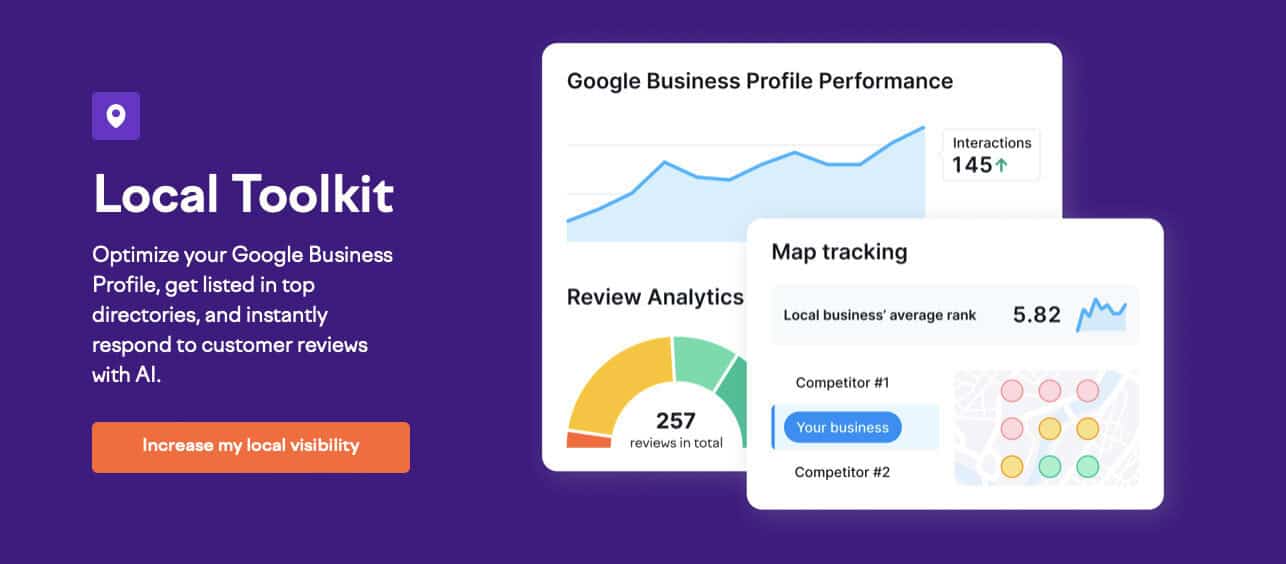- A Quick Comparison of the Best Local SEO Tools in 2025
- What Is Local SEO and Why It Matters in 2025?
- Why Use Local SEO Tools to Enhance Brand Visibility?
- Why AI Changes the Local SEO Game in 2025
- Top 18 Local SEO Tools to Boost Your Local Search Rankings
- Which Tools Should You Pay Attention To?
- FAQs About Local SEO Tools
Last Updated on August 27, 2025 by Ewen Finser
If you’re serious about showing up in Google’s local results, you already know that local SEO is a very different game from general SEO. The local pack, maps, and AI-generated answers have completely changed how customers discover businesses near them.
This guide has been fully updated for 2025, with the latest tools, pricing, and new players in the market.
Whether you’re a solo business owner, a multi-location enterprise, or an agency managing hundreds of clients, these tools can help you track rankings, manage reviews, optimize listings, and boost visibility in search and maps.
A Quick Comparison of the Best Local SEO Tools in 2025
If you just want the snapshot, here’s how the top local SEO tools compare.
Tool | Best For | Key Features | Pricing |
All-in-one suite for SMBs to enterprises | Listings, Map Rank Tracker, Reviews, Position Tracking, and GBP integration | From $30/mo | |
BrightLocal | Agencies and SMBs needing affordable local SEO | Audit, citation building, competitor insights, reviews, and rank tracking | From $39/mo |
Yext | Enterprise-level brand visibility | Listings, Knowledge Graph, AI search visibility, and reviews | Custom pricing |
Synup | Agencies needing all-in-one OS | Listings, reviews, social, CRM, and AI automation | From $99/mo |
Whitespark | Citation building and GBP optimization | Local Rank Tracker, Citation Finder, and Reputation Builder | Depends on the toolkit, but ranging from $1/location/mo to $1,399/mo |
SMBs needing easy-to-use local SEO | Listings sync, reviews, GeoRank, and social | From $20/mo | |
Tracking keyword rankings by location/device | Daily updates, local rank tracking, competitor comparisons, and device-specific insights | Part of Semrush’s SEO toolkit, from $139.95/mo | |
GeoRanker | API and enterprise-level SEO data | Rank tracking, citations, competitor insights, and SERP APIs | From $99/mo |
Google Business Profile | Free GBP management | Listings, reviews, posts, and analytics | Free |
Google Ads Keyword Planner | Free keyword discovery | Keyword ideas, forecasts, and CPC data | Free |
Google Search Console | Performance and index monitoring | Queries, indexing, and structured data | Free |
Google Analytics | Website analytics and conversions | GA4, attribution, and engagement tracking | Free |
Google Trends | Keyword and seasonal trend insights | Explore and Trending Now tools | Free |
Local Falcon | Grid-based rank tracking for SMBs and agencies | Map grid scans, SoLV metric, AI search monitoring, and multi-location management | From $24.99/mo |
Places Scout | Agencies needing deep data | 400+ data points, citation intel, and geo-matrix | Custom pricing |
Agencies and SMBs wanting flexibility | Local Marketing tool, reviews, GBP posts, and AI visibility | From $52/mo | |
BuzzStream | Link building and outreach | Outreach CRM, media lists, and influencer pitching | From $24/mo |
Grid My Business | Grid-based map pack visibility | Local rank grids, competitor monitoring, and GMB integration | From $29/mo |
What Is Local SEO and Why It Matters in 2025?
Local SEO is the practice of optimizing your online presence to attract more customers from relevant local searches conducted on Google and other search engines. That means showing up when someone searches for “dentist near me,” “pizza delivery in Austin,” or “best plumber Brooklyn.”
When customers perform a local search, they’re usually looking for specific information about local businesses such as their address, operating hours, and reviews.
Local SEO is vital for businesses that operate in specific geographical locations. It helps them gain more visibility in local search results, thereby attracting more customers. It’s not just about using standard industry keywords, but also incorporating location-specific keywords into the business’s online content.
For instance, a construction company based in New Jersey might use key phrases like “construction company in New Jersey” or “builder in Trenton, New Jersey” to attract local clientele.
Local SEO also involves managing online reviews and ratings, as well as ensuring the business is listed correctly on local directories and Google Business Profile. With a fully complete Google Business Profile, businesses have the chance to appear in the local pack – the three results displayed at the top of Google search results, thereby boosting visibility and attracting new customers.
In 2025, local SEO goes beyond just Google Maps. With AI-driven search (Google’s AI Overviews, ChatGPT, Gemini, Perplexity, etc.) shaping recommendations, businesses need to optimize for both traditional map packs and AI-generated results.
Done well, local SEO gets your business in front of people who are ready to buy. Done poorly, you’re invisible in the moments that matter most.
I use a LOT of tools. Probably more than I need to. There are a few that are truly indispensable. I have a Semrush tab open EVERY day as I work. Keyword searches, technical audits, competitor analysis? It does it all. Try it out for free.
Why Use Local SEO Tools to Enhance Brand Visibility?
Local SEO tools simplify and scale what would otherwise take hours of manual work. They help you:
- Engage your audience when you select the right keywords to target
- Track rankings across multiple ZIP codes, neighborhoods, or cities
- Manage your Google Business Profile (GBP) and other listings to ensure consistency
- Monitor and respond to reviews in one dashboard
- Manage your online business reputation
- Audit citations and spot inaccuracies
- Get competitor insights and AI-driven recommendations
In short: the right tool saves time, keeps your data consistent, and puts you ahead of your competitors.
Why AI Changes the Local SEO Game in 2025
Not long ago, local SEO was about one thing: ranking in Google Maps and the local pack. That’s still true, but 2025 has added a new wrinkle—AI-driven search. Tools like Google’s AI Overviews, ChatGPT integrations, and even AI-powered assistants built into phones are changing how people discover businesses nearby.
The catch? These systems rely on the same signals you’d expect from traditional local SEO—consistent listings, accurate NAP data, reviews, and structured content—but they also favor businesses with richer, cleaner data. If your information is scattered, outdated, or incomplete, you’re less likely to show up in AI-generated answers.
This is where today’s local SEO tools become even more important. Platforms like Semrush, Yext, and BrightLocal don’t just help you rank in the map pack; they also make sure your business data is structured and distributed in ways AI systems can easily understand. That means every citation, every review, and every schema markup you optimize increases the odds of being surfaced when an AI assistant answers “What’s the best pizza near me?” or “Find a plumber open right now.”
In short: Traditional local SEO is the foundation, but AI-ready SEO is the future, and the tools below bridge both worlds.
Top 18 Local SEO Tools to Boost Your Local Search Rankings
Local SEO in 2025 is tougher than ever. There’s more competition, more updates, and more places your business needs to appear consistently.
These are the tools I rely on when clients ask me to boost their map pack presence or clean up inconsistent listings. Each one solves a different piece of the puzzle, depending on your goals and budget.
1. Semrush Local SEO Toolkit
Best for all-in-one local SEO management
If I had to pick just one tool for local SEO in 2025, it would still be Semrush. Their Local SEO Toolkit has evolved into a powerhouse: listings, map tracking, reviews, reporting, and even AI features that save you hours.
The standout? Map Rank Tracker lets you track rankings across a grid of locations, so you know exactly where you show up in the map pack. Their Review Management tool now includes AI-suggested responses, and the Listing Management module automatically updates your info across directories.
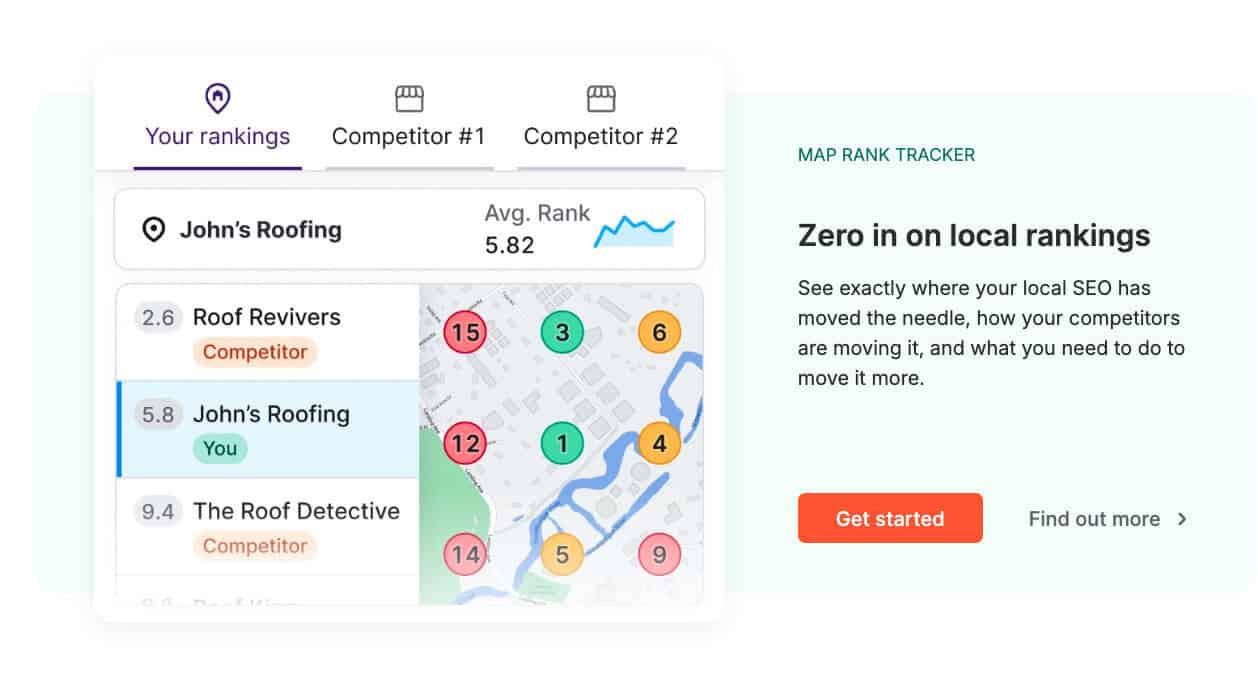
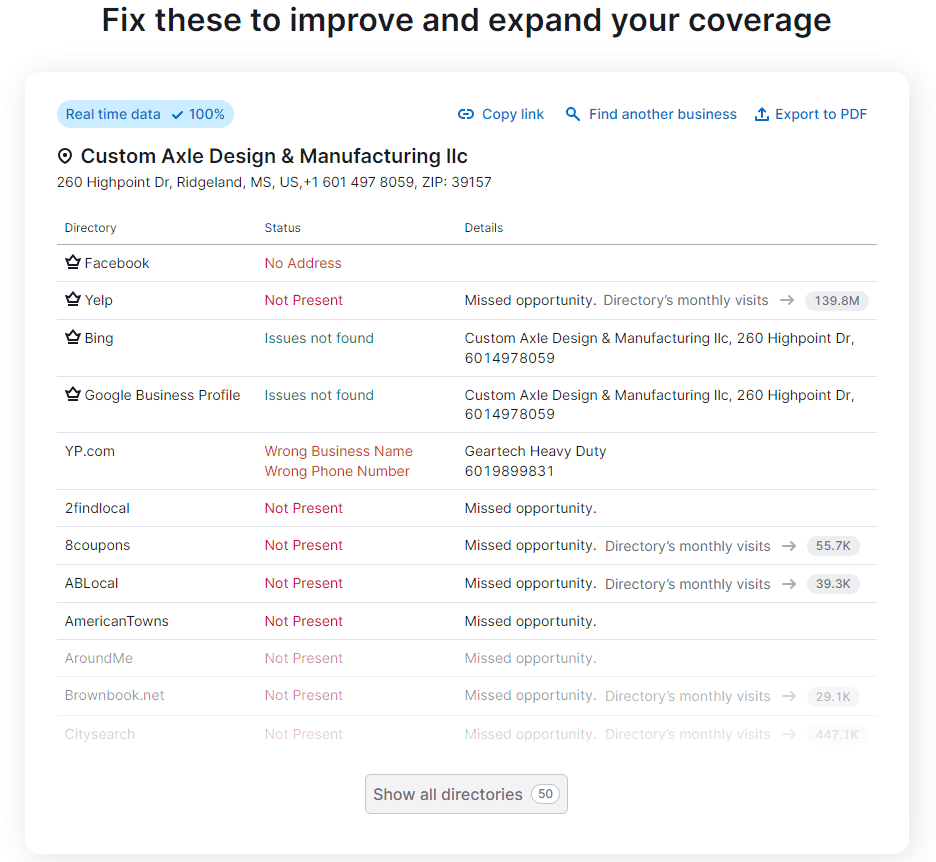
You also get email reports that save time if you’re managing multiple sites or franchises.
By standardizing and distributing structured business data, Semrush improves your chances of showing up not just in Google Maps, but also in AI-driven search results like Google’s AI Overviews and ChatGPT-style local queries.
Key features:
- Listing Management with duplicate suppression
- Map Rank Tracker with geo-grid scans
- Review Management with AI responses
- Position Tracking down to ZIP-code level
- Social media posting (including Google Business Profile)
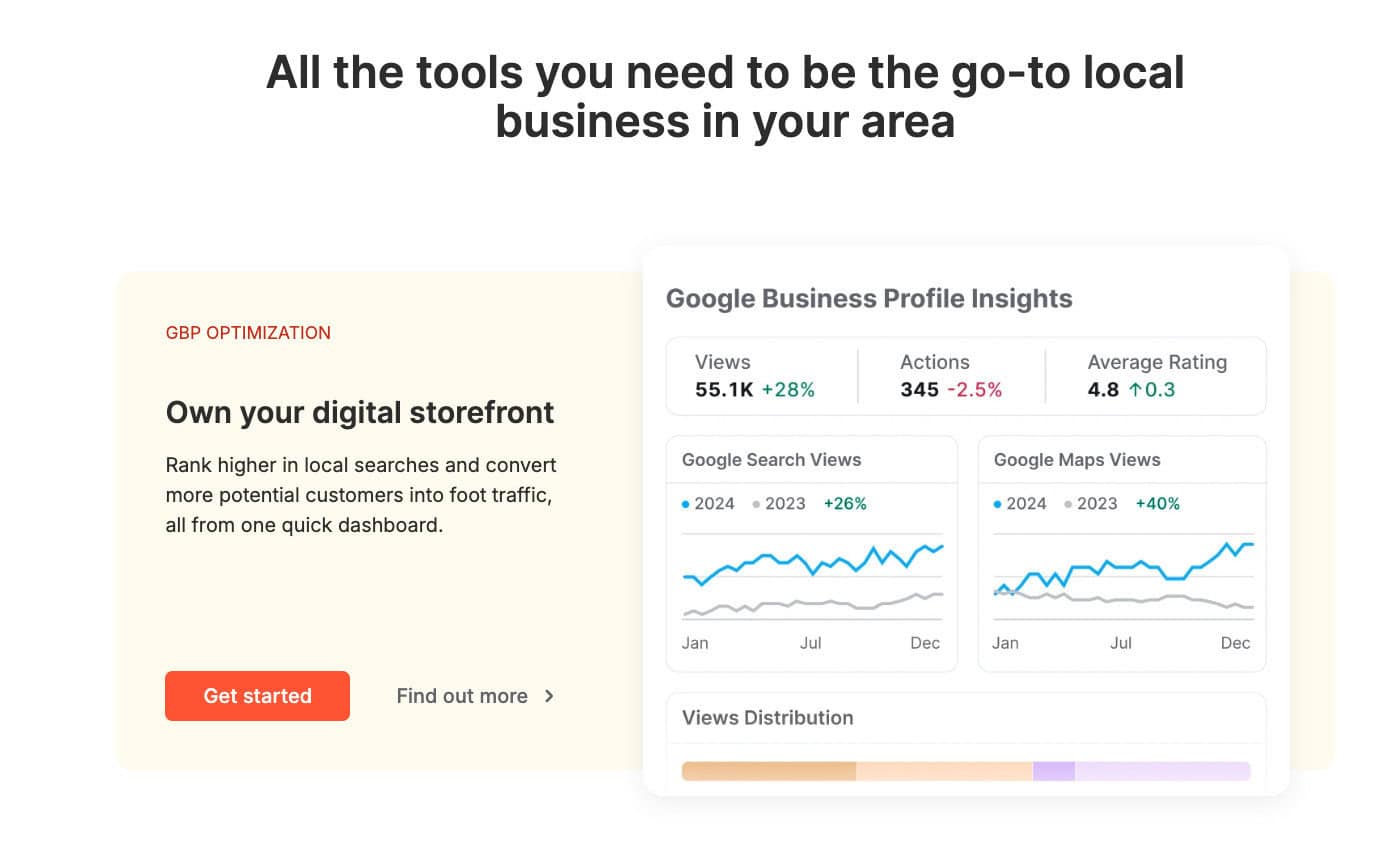
Pricing snapshot:
- Base: $30/mo (GBP optimization, AI reviews, 375 credits)
- Pro: $60/mo (adds listings, API access, 1,225 credits)
Business: Custom pricing
Further Read: My Full Semrush Review.
2. BrightLocal
Best for agencies & SMBs needing affordable local SEO
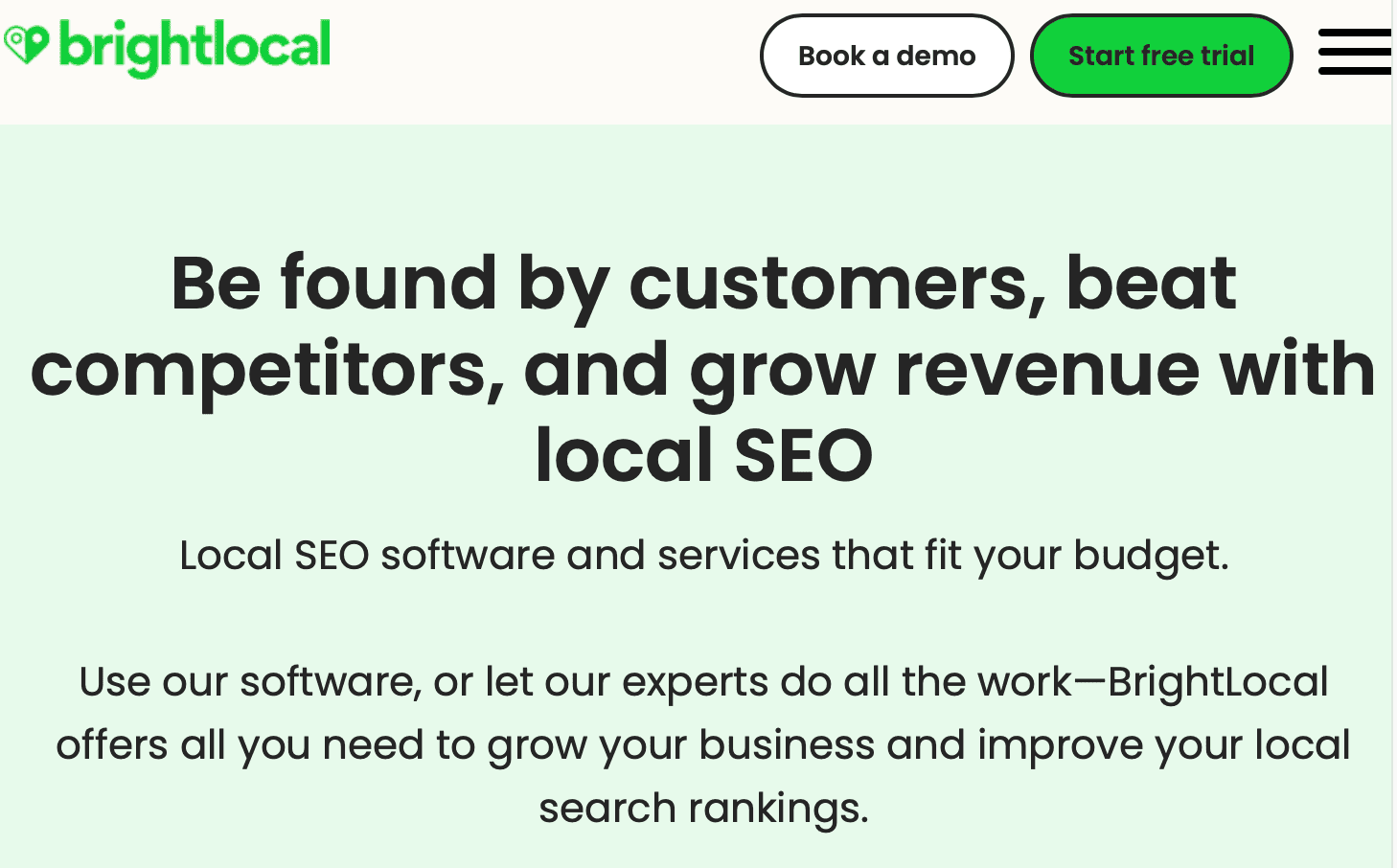
BrightLocal has carved out a niche as one of the easiest ways to audit, monitor, and manage local SEO. It handles everything from citation tracking to review management, with reports that make it simple to demonstrate ROI for clients or internal stakeholders.
Its strength lies in keeping local SEO fundamentals airtight with citations, reviews, rankings. These are exactly the signals AI search assistants lean on to decide which businesses to surface.
It’s also one of the most affordable tools, starting at $39/month.
Key features:
- Citation audit and building
- Local Rank Tracker across Google and Bing
- Review monitoring across 80+ sites
- GBP posts scheduling and reporting
- White-label reporting for agencies
Pricing snapshot:
- Track: $39/mo
- Manage: $49/mo
- Grow: $59/mo
- Citation Builder: $2 per citation
- Local SEO Services: starting at $799/mo
3. Yext
Best for enterprise brand visibility
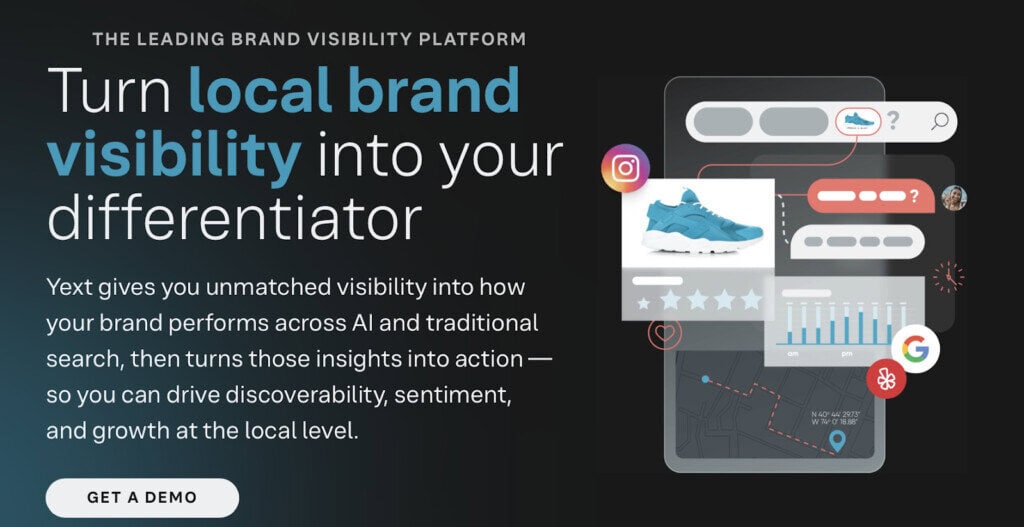
Yext positions itself as more than a listings tool. It’s essentially a knowledge graph for your business. That means your data isn’t just published; it’s structured in a way that’s easier for search engines (and now AI systems) to interpret.
It also integrates reviews and voice search compatibility, making it a strong pick for businesses looking to future-proof their visibility.
Because Yext emphasizes structured data and AI-ready business information, it’s one of the best bets for ensuring your company appears in AI-powered search results and voice assistants.
Key features:
- Knowledge Graph data management
- Listings across 200+ publishers
- Review management and sentiment analysis
- AI search visibility tracking (Scout)
- Local pages and social content publishing
Pricing snapshot:
- Enterprise-only, custom pricing
Yext also provides powerful tools to make your business listings compatible with voice search optimization.
43. Synup
Best for agencies wanting an all-in-one OS
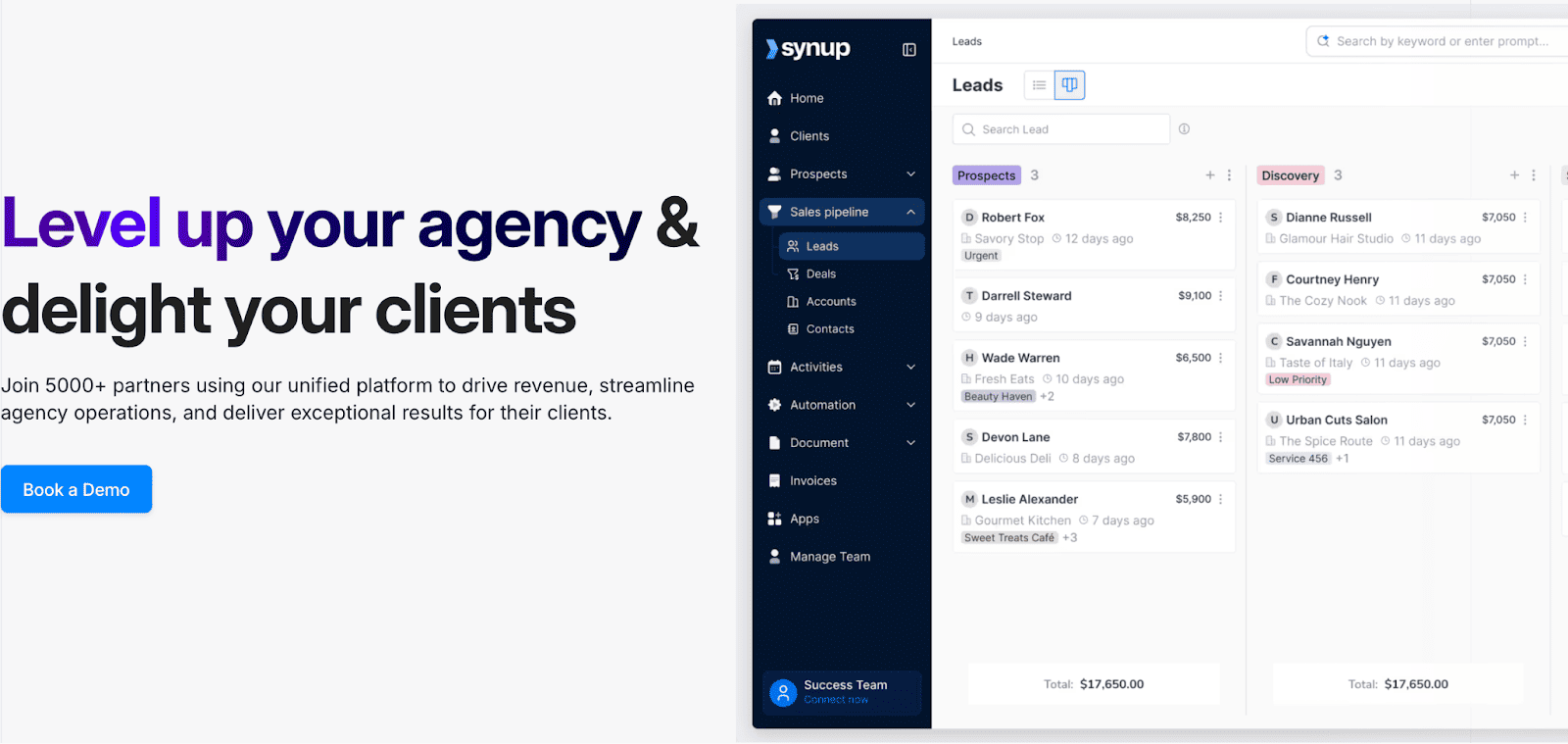
Synup gives you a bird’s-eye view of your presence across directories, review sites, and local engines. It automatically scans for inconsistencies and pushes updates to keep citations clean. Reporting tools also make it easier to track ongoing performance without babysitting every channel.
By automating citation accuracy, Synup ensures that the business information AI models pull from local sources is consistent. This reduces the risk of being excluded or misrepresented in AI results.
Key features:
- Listings management across wide publisher network
- AI-powered review replies and campaigns
- Social posting and scheduling
- CRM and pipeline management
- White-label reporting and portals
Pricing snapshot:
- Startup: $99/mo
- Agency: $249/mo
- Scale: $999/mo
- Add-ons: Listings Pro at $35/location/mo, Reviews at $20-$50/location/mo, Social at $6/connect/mo, SEO at $5/location/mo
5. Whitespark
Best for citation building & GBP optimization
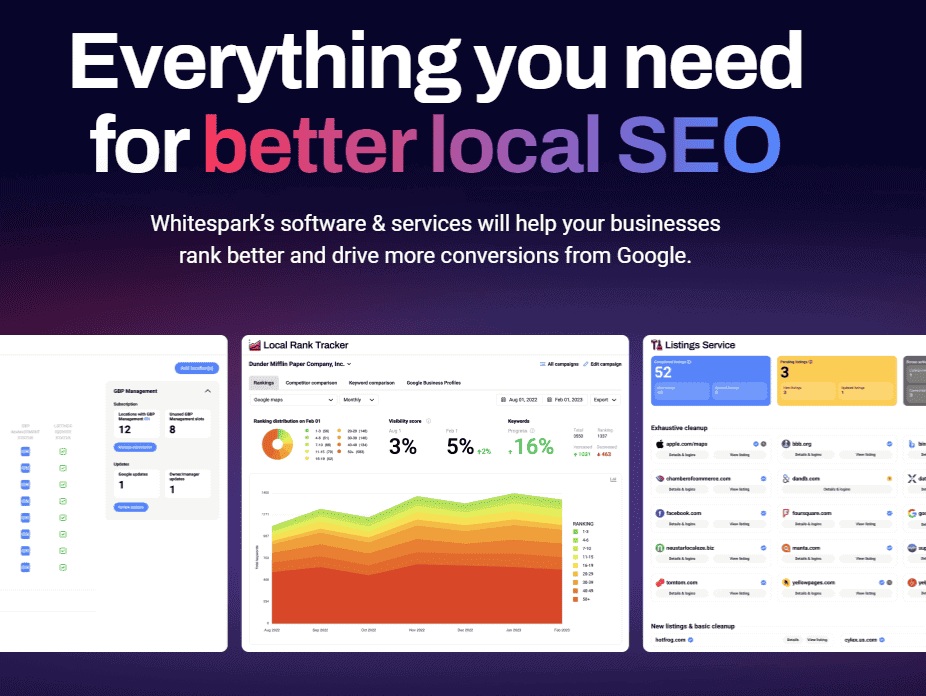
Whitespark is known for its citation finder, which helps you identify where competitors are getting listed. Beyond that, it offers review monitoring and local rank tracking. For businesses that want to maximize citation-building (still a cornerstone of local SEO), it’s one of the best tools available.
Whitespark’s focus on citation building means you’re strengthening the structured signals AI platforms depend on to validate and surface local businesses.
Unlike bundled tools, Whitespark sells each tool individually, so you only pay for what you need.
Key features:
- Local Rank Tracker and Grids
- Citation Finder for opportunities
- Reputation Builder for reviews
- GBP management dashboard
- Citation cleanup and Yext replacement service
Pricing snapshot:
- Local Platform: $1/location/mo
- Local Ranking Grids: $10-$200/mo
- Local Rank Tracker: $14-$200/mo
- Local Citation Finder: $33-$149/mo
- Reputation Builder: $79/mo/location
- SEO Services: $499-$1,399/mo
- Listings Service: $20-$999 (one-time)
- Yext Replacement Service: $399 per location (one-time)
- Enterprise Services: custom pricing
6. Moz Local
Best for SMBs needing simplicity
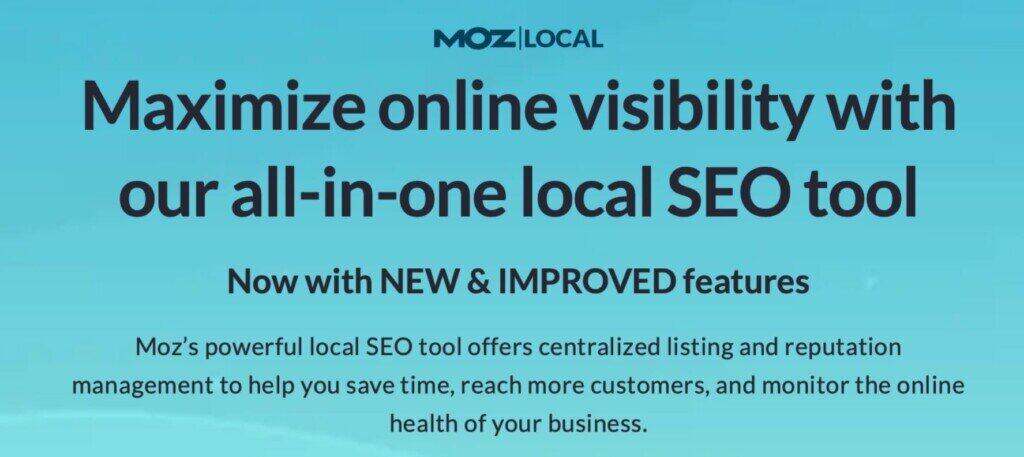
Moz Local is designed for small businesses who want something easy-to-use without a steep learning curve. The platform auto-syncs your listings across directories, lets you respond to reviews, and now includes GeoRank for hyper-local tracking.
It also integrates social posting for GBP and Facebook, which is handy if you don’t want to juggle multiple tools.
Key features:
- Auto-sync listings across 90+ directories
- GeoRank for hyper-local keyword tracking
- Review monitoring and response templates
- Social media posting and analytics
- Sentiment analysis and competitor tracking
Pricing snapshot:
- Lite: $20/mo
- Preferred: $30/mo
- Elite: $40/mo
7. Semrush Position Tracking Tool
Best for tracking hyper-local keyword rankings
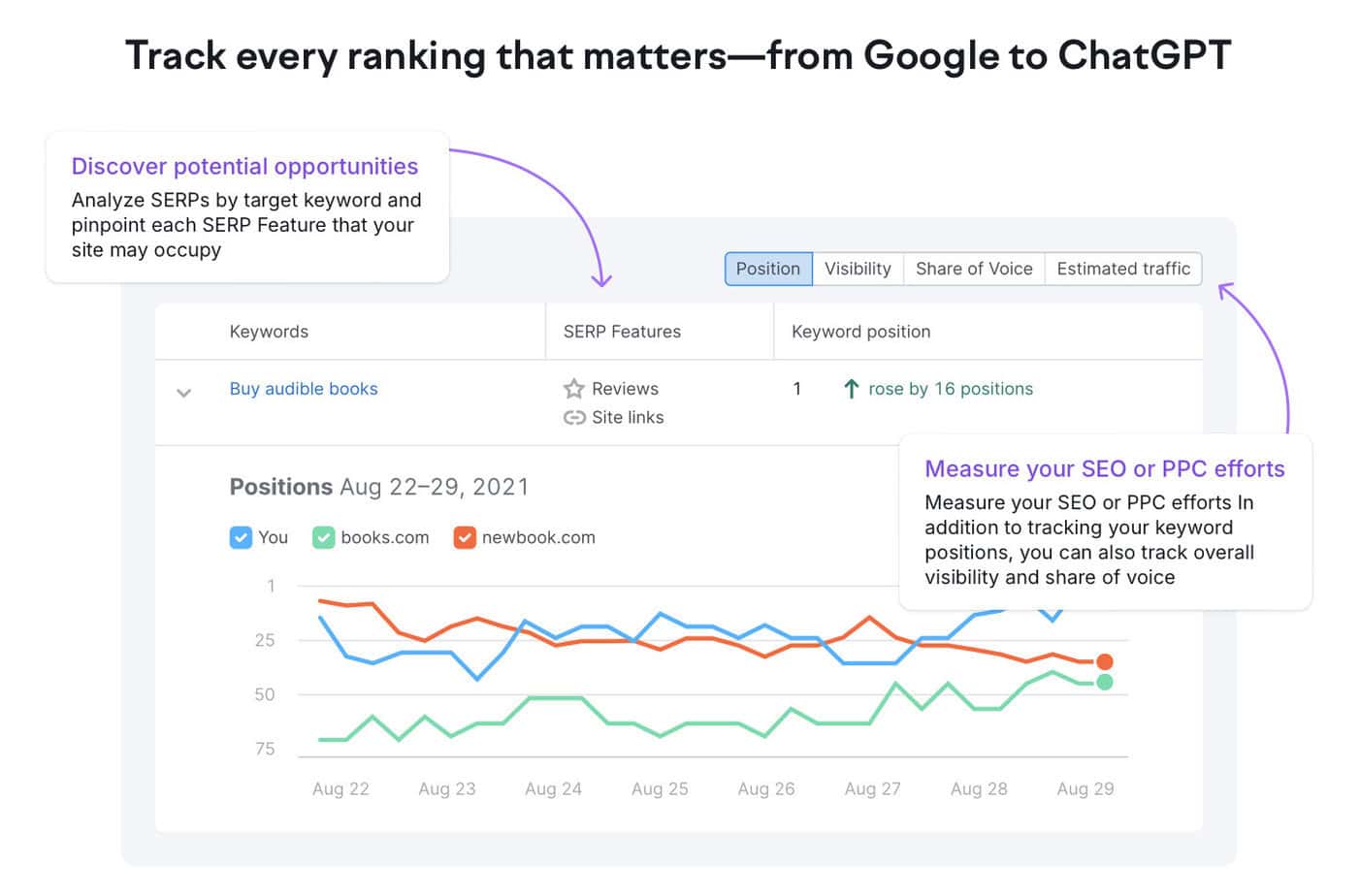
The Position Tracking tool is one of the most underrated parts of Semrush’s SEO Toolkit when it comes to local campaigns. Instead of just checking where you rank nationally, you can drill down to see how your site performs in specific ZIP codes, cities, or even for “near me” searches. That means you’ll know exactly how visible you are to customers in your service area, not just in broad search.
It also gives you competitor benchmarking, SERP feature tracking, and daily updates, which makes it easier to see how local algorithm changes affect your business. For agencies, the ability to set up multiple tracking projects across locations is a huge win.
Key features:
- Track rankings at the ZIP code or city level
- Monitor desktop vs. mobile results separately
- See competitor visibility side by side
- Daily updates with customizable alerts
Pricing snapshot:
- Included in the SEO toolkit (Pro $139.95/mo, Guru $249.95/mo, Business $499.95/mo)
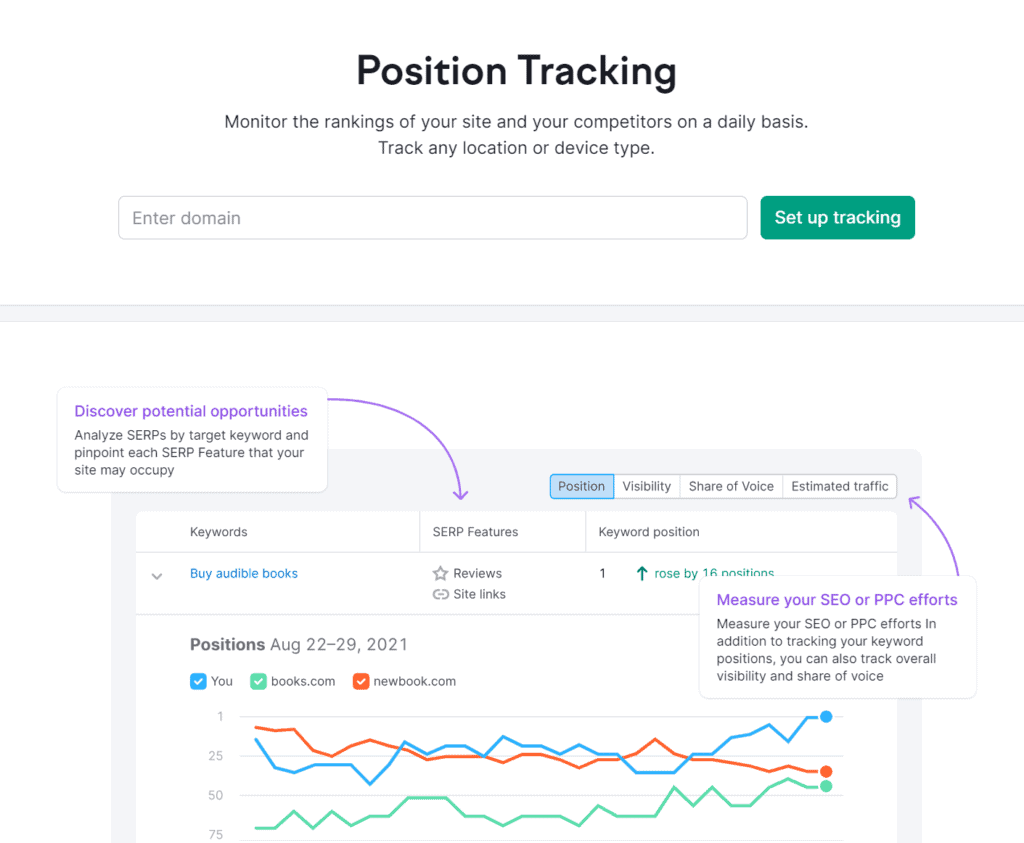
8. Georanker
Best for SEO data & API integrations
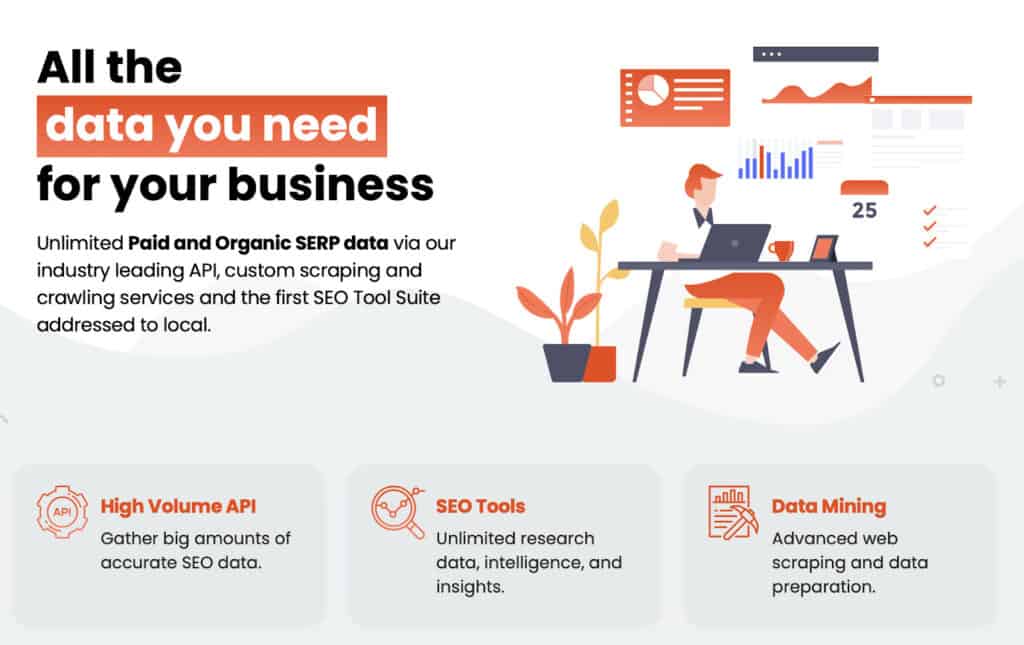
Georanker isn’t the prettiest tool, but if you’re an enterprise, SaaS, or agency building your own dashboards, it’s great. Their APIs give you raw ranking, SERP, citation, and keyword data from multiple search engines worldwide.
Key features:
- Rank Tracker and SERP API
- Citation sources finder
- Keyword research and density tools
- Voice search data extraction
- White-label and Sheets integrations
Pricing snapshot:
- Pro: $99/mo (10k credits)
- Agency: $249/mo (50k credits)
- Enterprise: $490/mo (120k credits)
- API: from $220/month
- Data mining: custom pricing
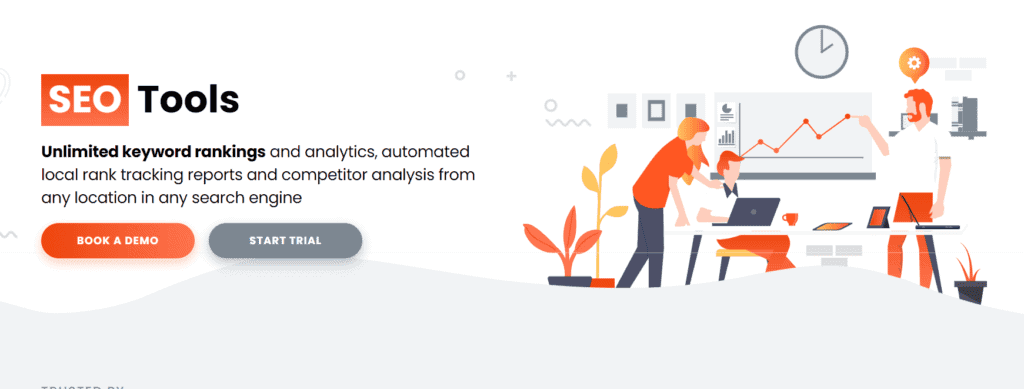
9. Google Business Profile
Best free local SEO tool
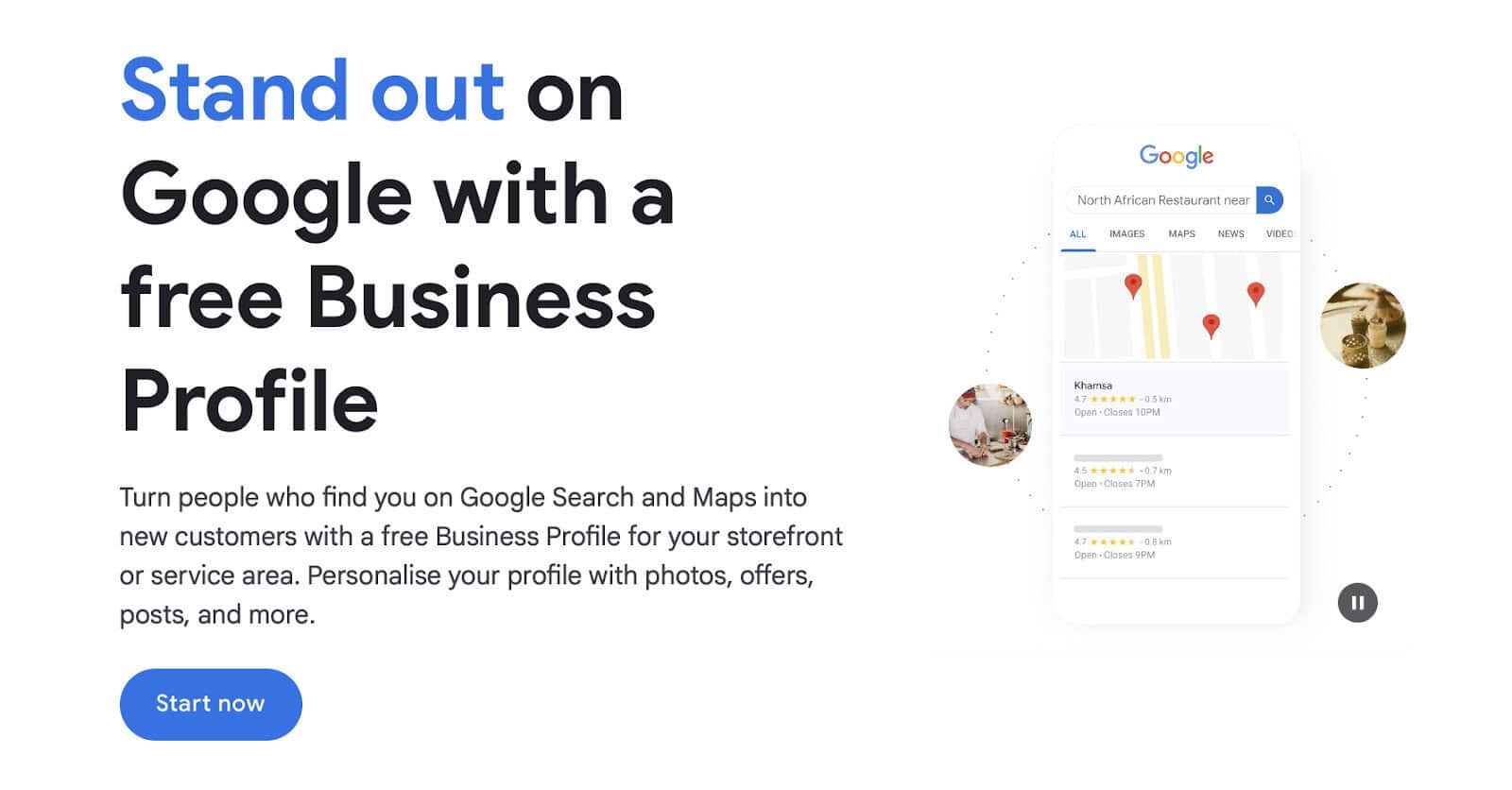
Google Business Profile is still the #1 best free one of the best local SEO tools. If you don’t have this set up, you’re already behind.
It’s the free listing that fuels Google Maps and the local pack, making it essential for showing up in local searches. Keeping your profile updated with accurate info, fresh posts, and active review responses can make or break your visibility.
Key features:
- Free business listing on Google Search and Maps
- Reviews and Q&A management
- Business posts and updates
- Insights on calls, direction requests, and profile views
Pricing snapshot:
Free
10. Google Ads Keyword Planner
Best free keyword tool for local search
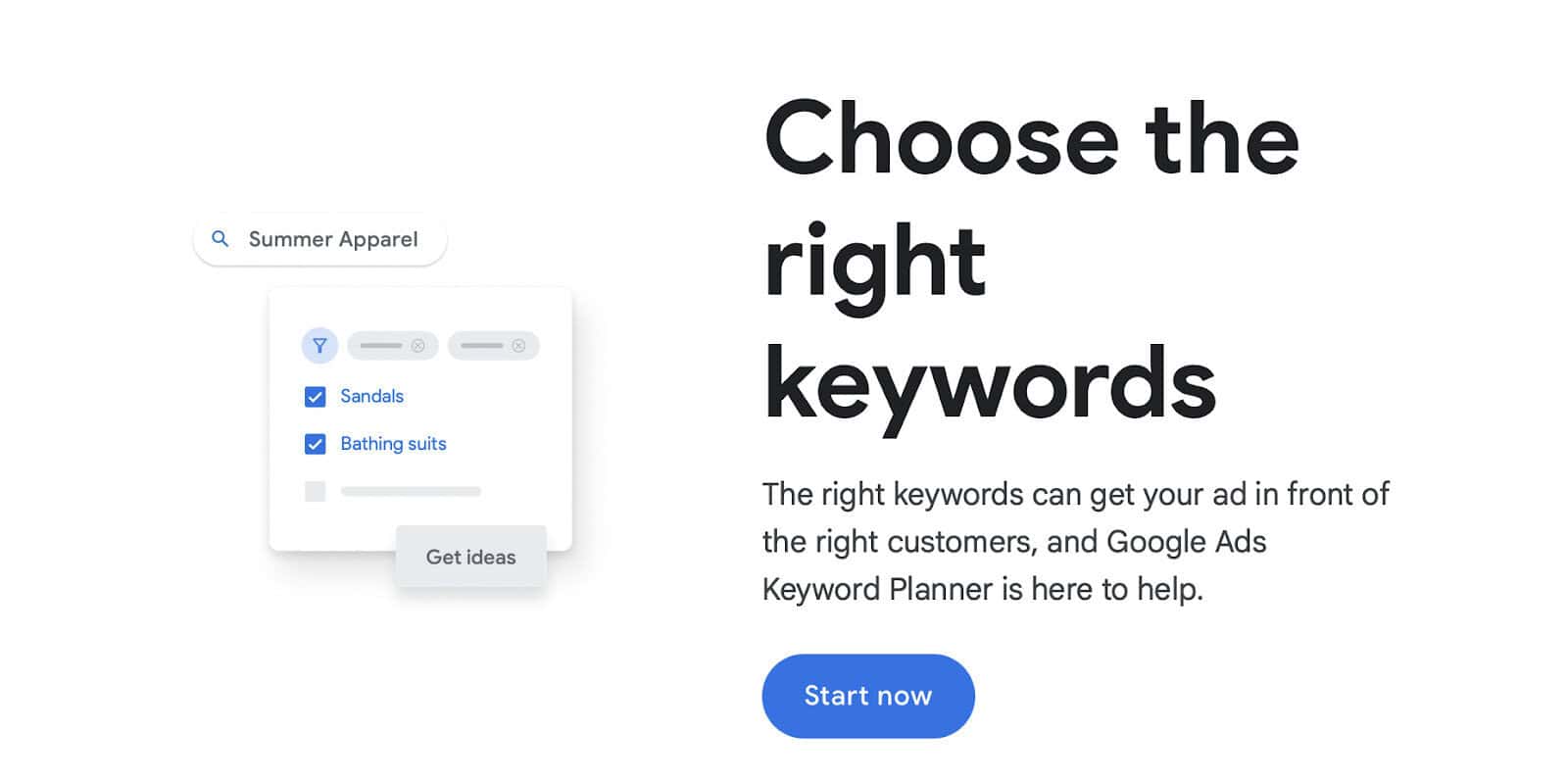
The Google Ads Keyword Planner isn’t just for paid campaigns—it’s also a smart way to validate local keyword demand. You can gauge search volume, CPC values, and seasonal patterns, which helps you prioritize keywords for both organic and paid strategies.
Key features:
- Keyword ideas and related terms
- Monthly search volume estimates
- CPC and competition data
- Forecasts for campaign planning
Pricing snapshot:
- Free
11. Google Search Console
Best for organic performance monitoring
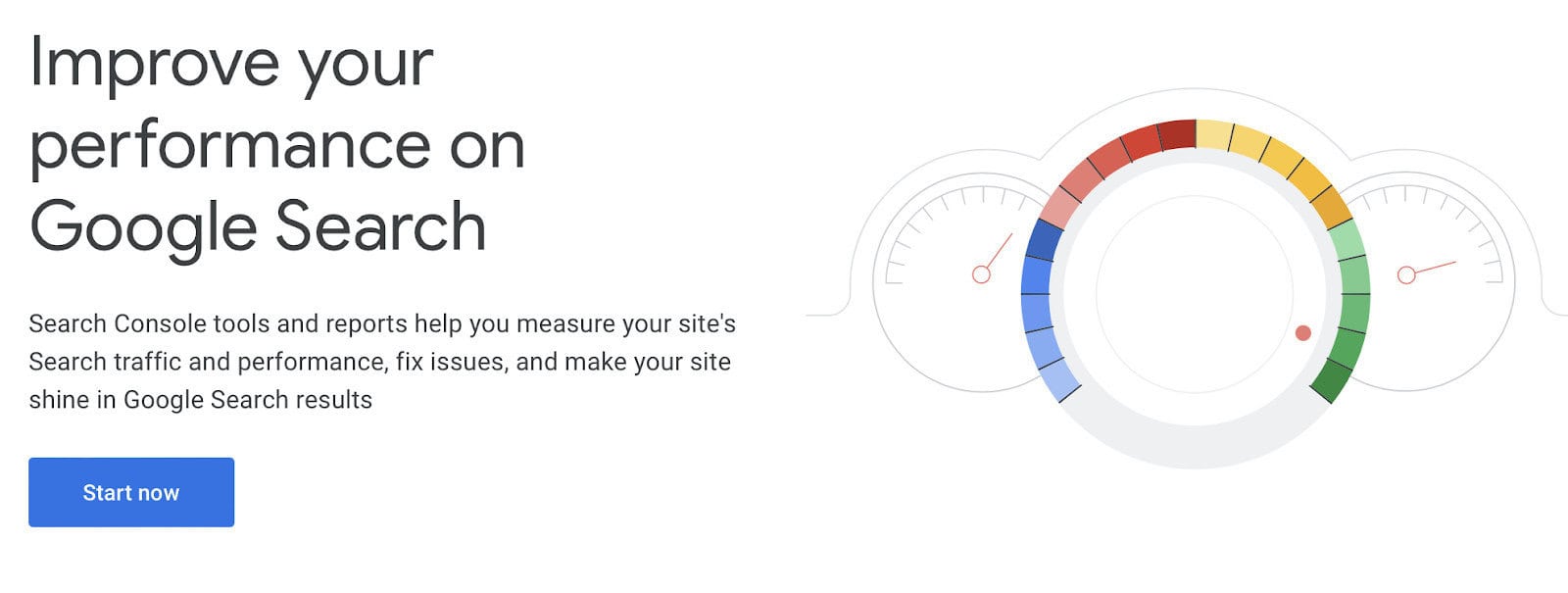
Google Search Console is your direct line into how Google sees your website. It’s packed with data on queries, impressions, and clicks, plus alerts if Google can’t crawl or index your pages.
For local SEO, it helps spot underperforming pages or queries you should optimize with local intent.
Key features:
- Performance reporting for queries, pages, and CTR
- Indexing status and crawl issues
- Core Web Vitals and structured data insights
- URL inspection tool for troubleshooting
Pricing snapshot:
- Free
12. Google Analytics (GA4)
Best for traffic & conversion insights
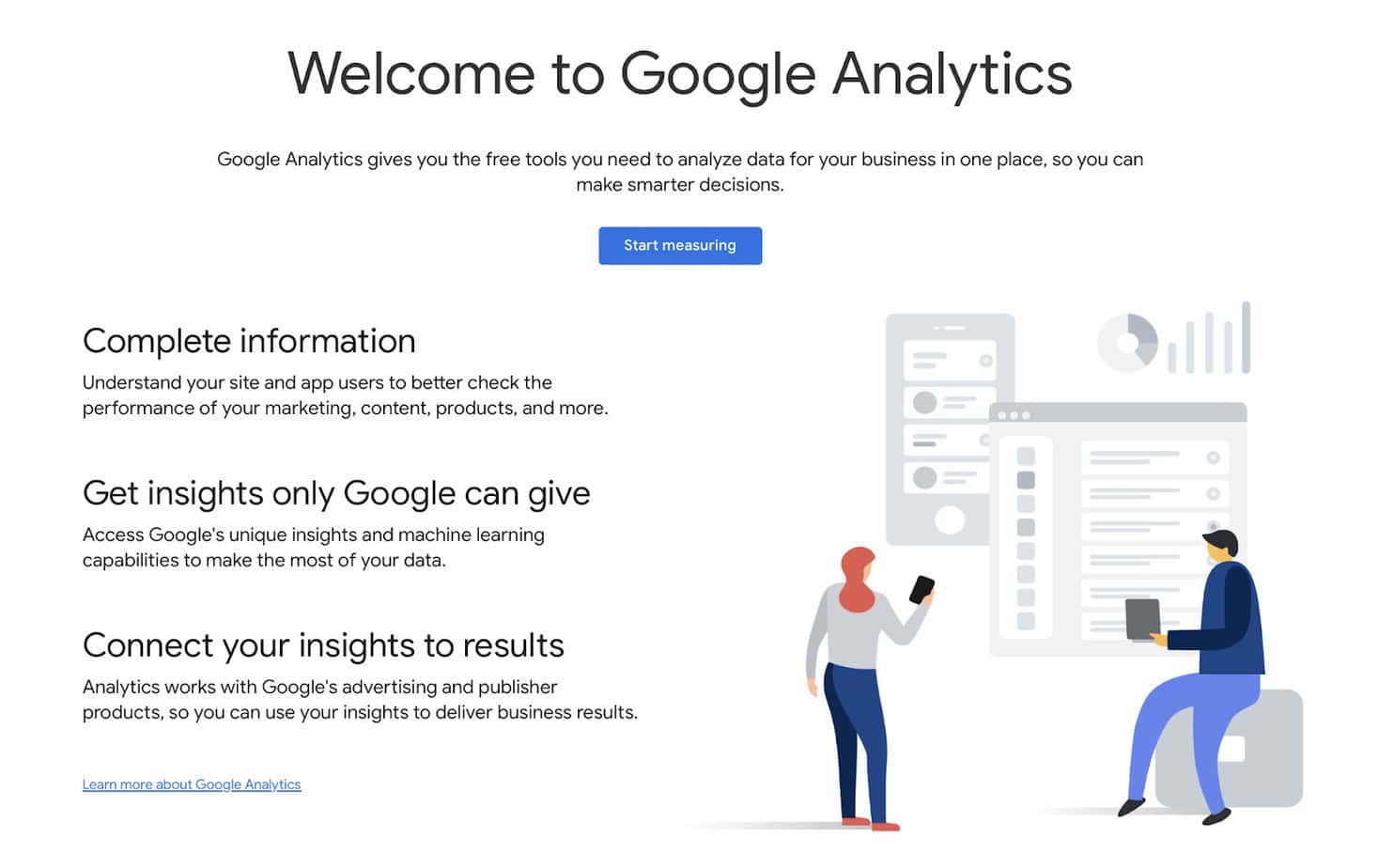
Google Analytics (GA4) gives you a window into how users actually interact with your site. For local businesses, it’s a way to track conversions like calls, form fills, and bookings, plus tie those actions back to traffic sources.
Key features:
- Real-time and historical traffic data
- Audience and behavior tracking
- Conversion and attribution reporting
- Integrates with Google Ads and Search Console
Pricing snapshot:
- Free
13. Google Trends
Best for spotting seasonal and rising trends
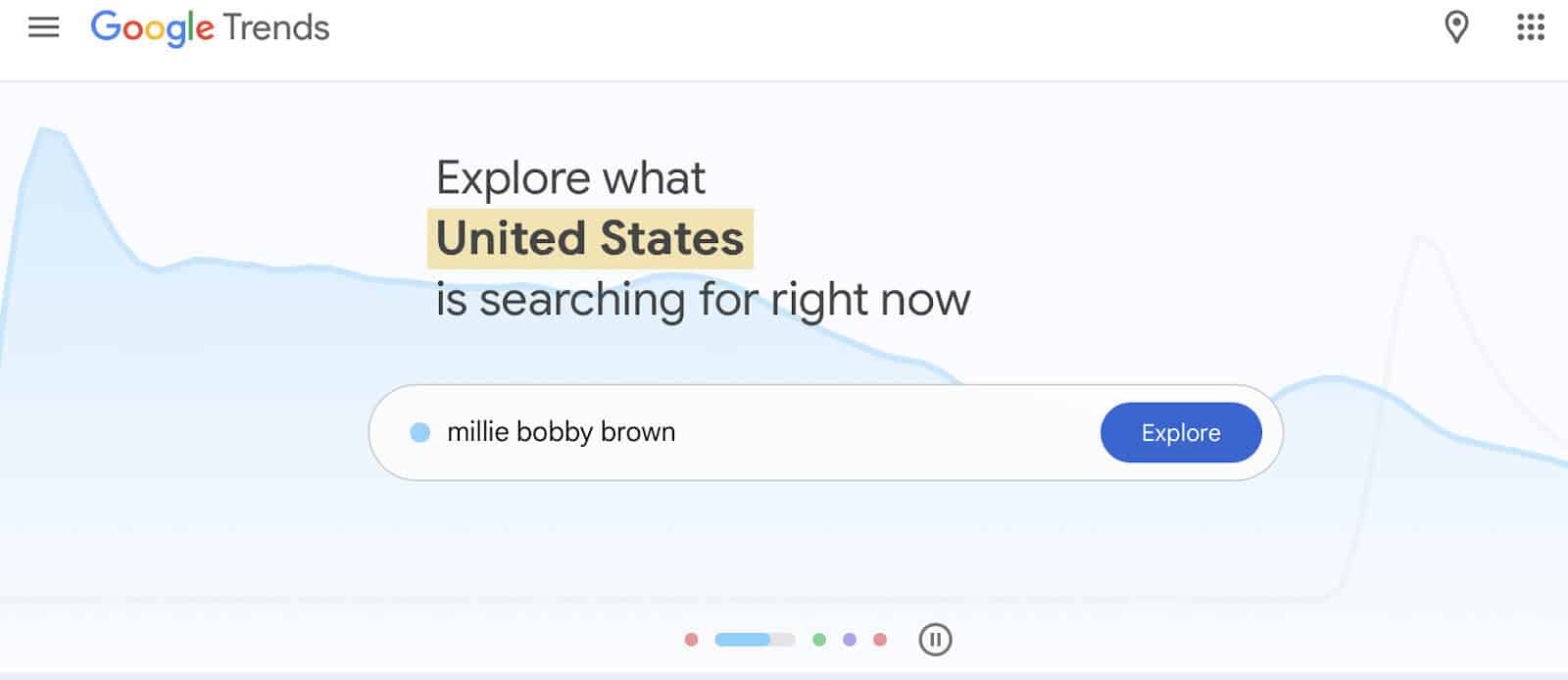
Google Trends is often overlooked, but it’s excellent for identifying seasonal search demand (think “pumpkin spice latte near me”) and local keyword interest. You can spot breakout topics, compare keyword popularity, and time promotions around when customers are actually searching. It’s also great for benchmarking your industry against competitors.
Key features:
- Keyword popularity over time
- Compare multiple keywords
- Location and category filters
- “Trending Now” for rising search topics
Pricing snapshot:
- Free
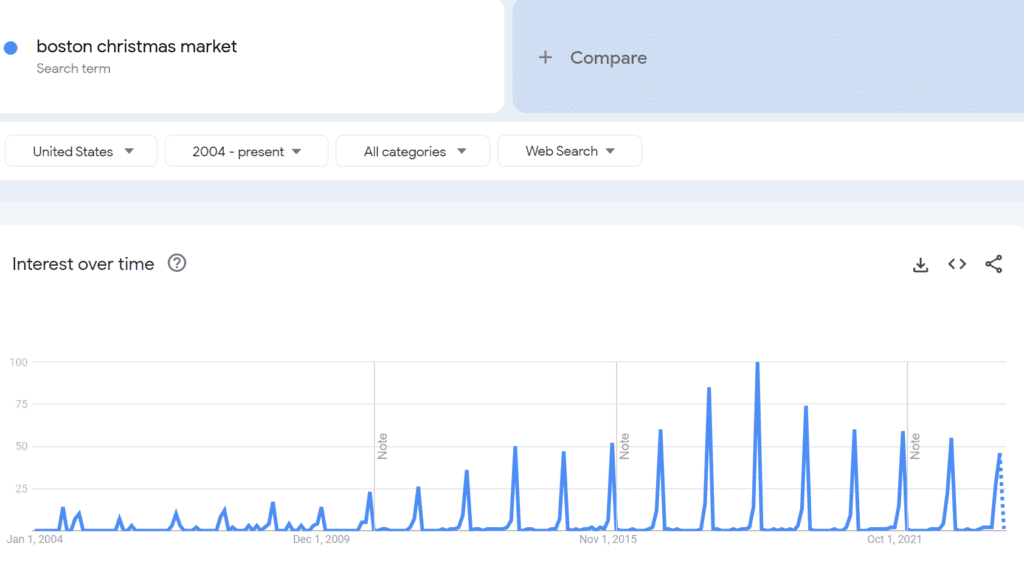
14. Local Falcon
Best for grid-based rank tracking & AI visibility
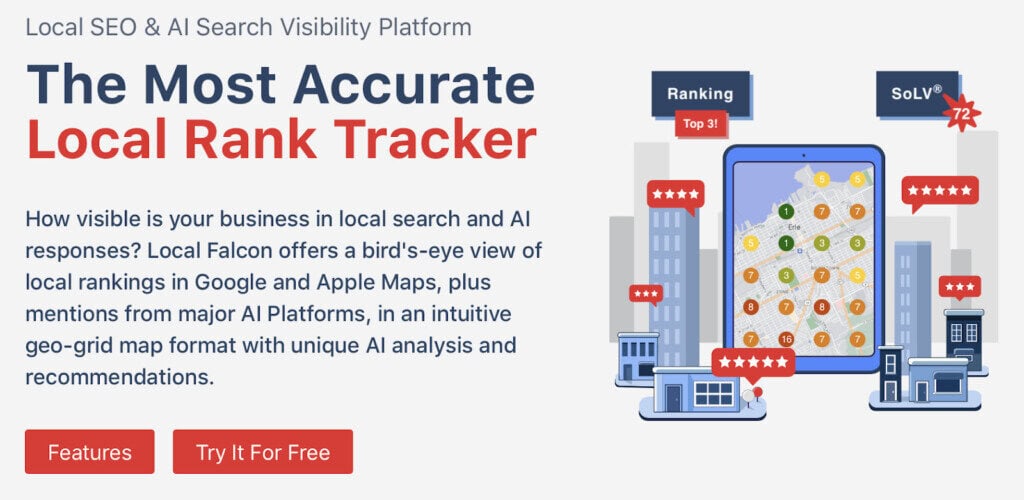
Local Falcon gives you a geo-grid map view of how your business ranks across a city. It also introduced AI visibility tracking, monitoring how your business shows up in ChatGPT, Google AI Overviews, and Gemini.
Key features:
- Geo-grid map rank scans
- Share of Local Voice (SoLV) metric
- AI visibility tracking across ChatGPT, Gemini, and Grok
- Competitor analysis and Looker Studio integration
- Falcon AI assistant for recommendations
Pricing snapshot:
- Starter: $24.99/mo
- Basic: $49.99/mo
- Pro: $99.99/mo
- Premium: $199.99/mo
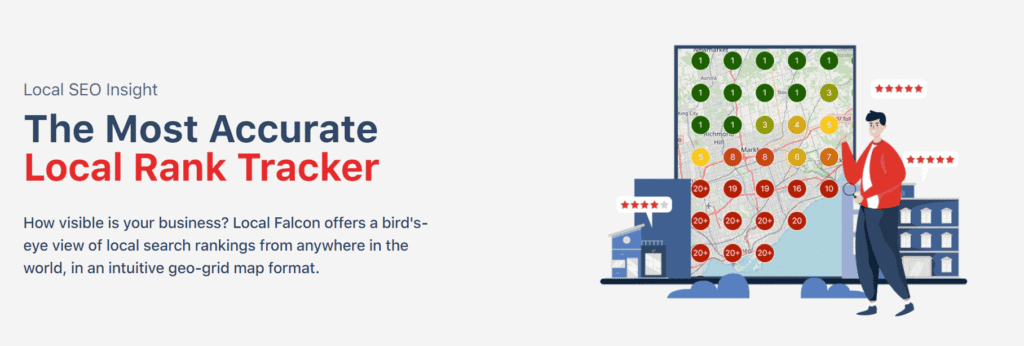
15. Places Scout
Best for deep-dive local SEO intelligence
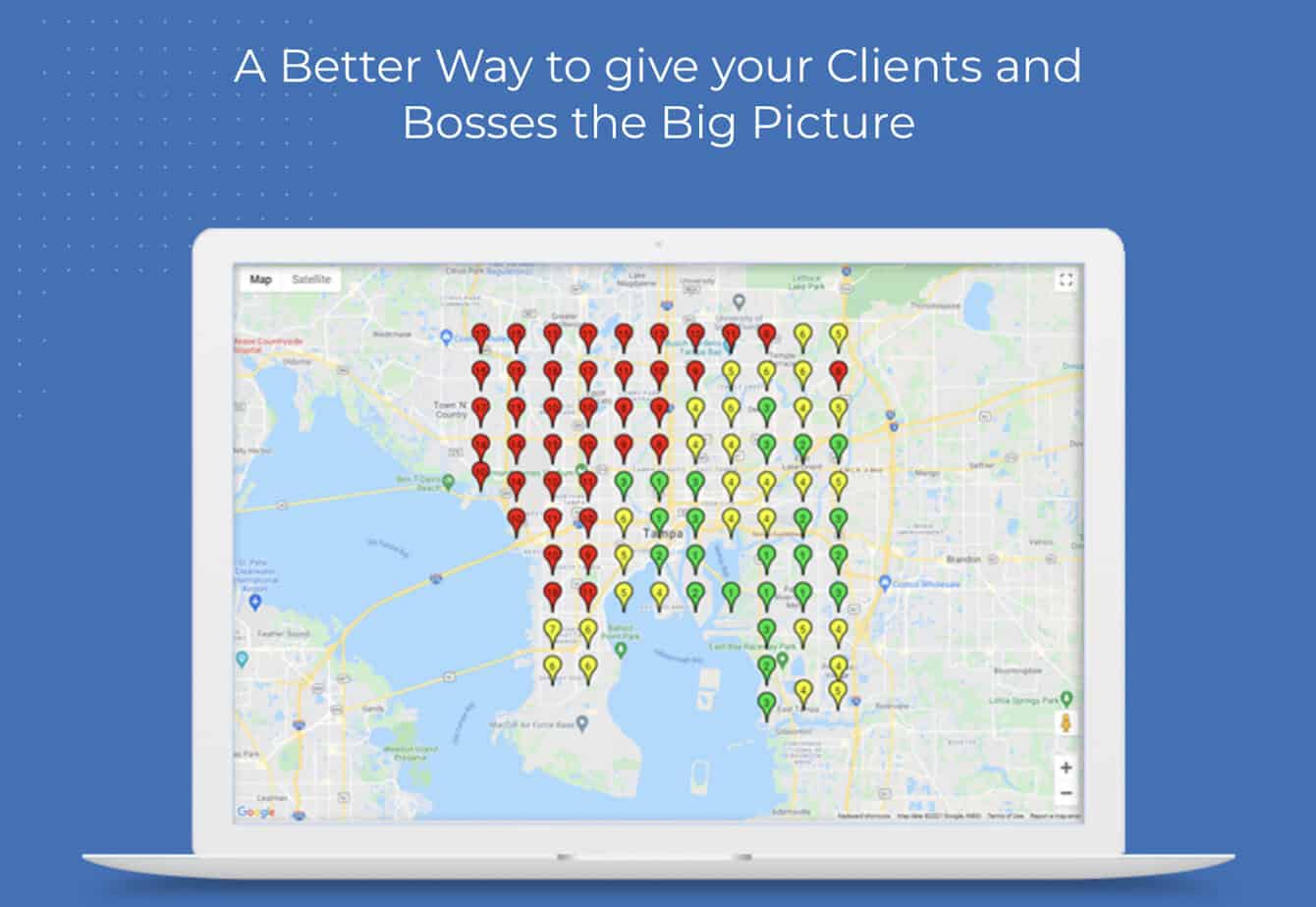
Places Scout is popular with agencies because it runs 400+ data point audits across listings, citations, GBP, and reviews. The Geo-Matrix visualizes your rankings across a map grid, and the reporting makes it easy to show clients what’s working.
Key features:
- 400+ data point audits
- Citation Intel and Listing Audit
- GBP Radar for accuracy checks
- Reputation monitoring and competitor insights
- Easy reporting
Pricing snapshot:
- Custom pricing
16. SE Ranking
Best for agencies needing flexible pricing & AI visibility
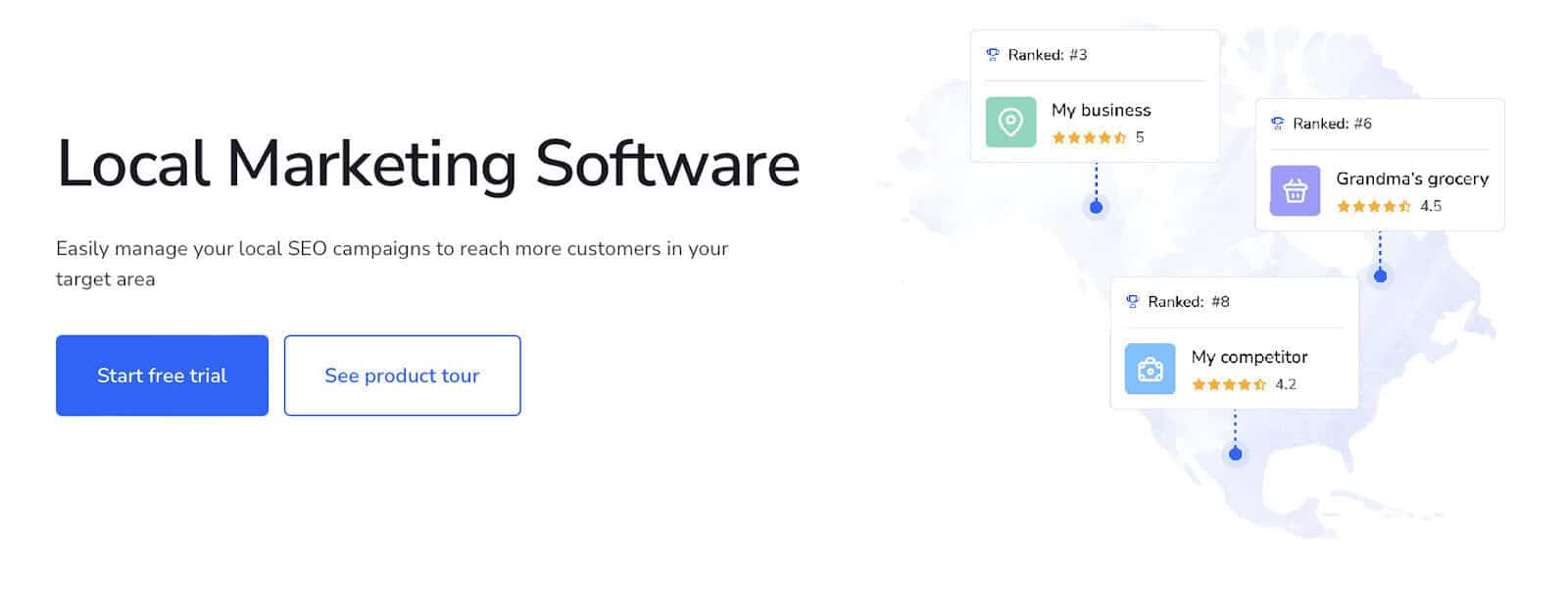
SE Ranking is one of the fastest-growing SEO platforms and now includes a Local Marketing tool. You can manage listings, schedule GBP posts, track rankings on map grids, and even monitor AI Overviews visibility.
Key features:
- Local and Map Rank Tracker
- GBP posts scheduler
- Listings management across 100+ directories
- Reviews management
- AI visibility tracking
Pricing snapshot:
- Essential: from $65/mo
- Pro: from $119/mo
- Business: from $259/mo
- Standalone API: $140/mo
- Local Marketing add-on: from $23/mo
17. BuzzStream
Best for link building & local PR
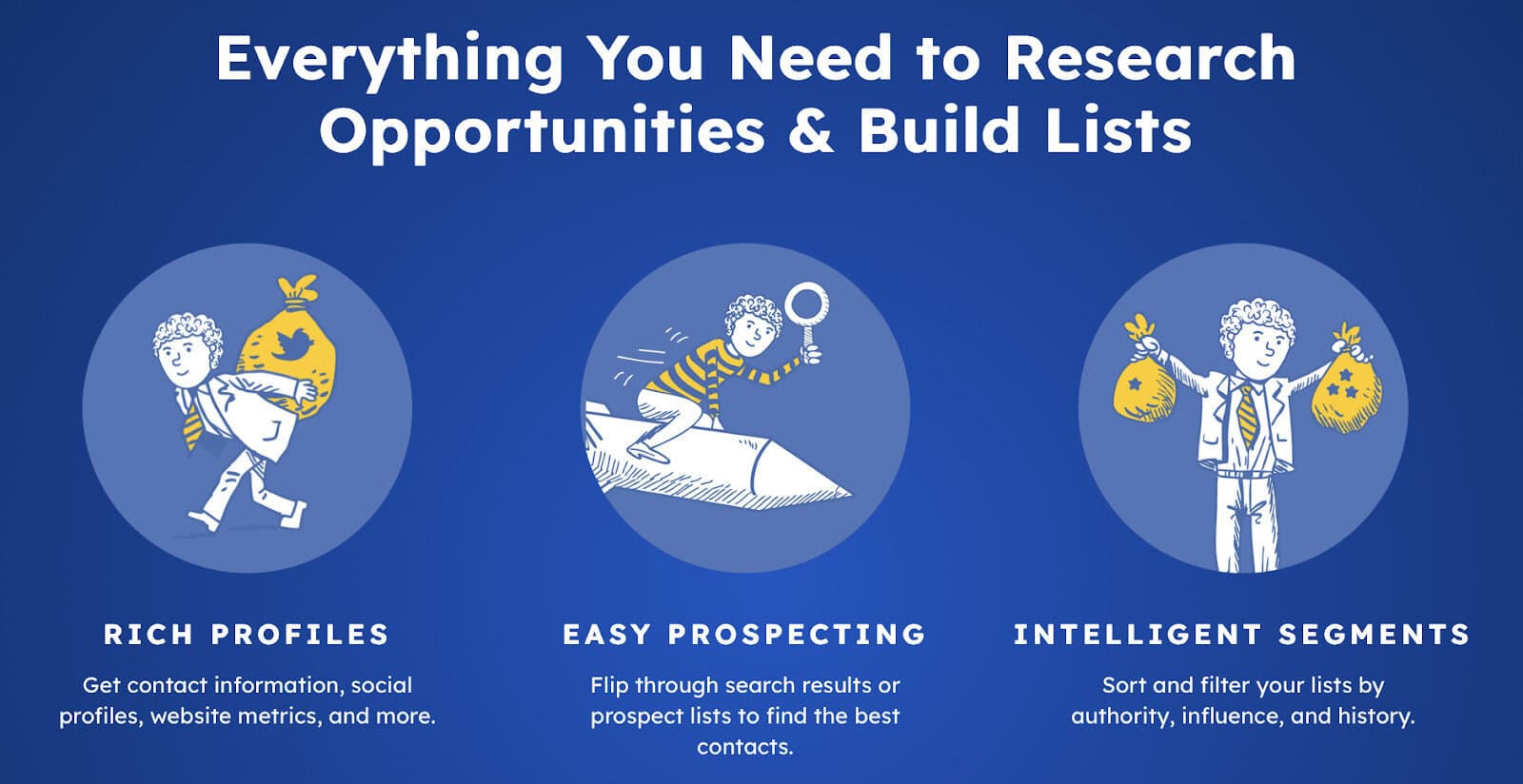
Local SEO isn’t just about maps; it’s also about authority. BuzzStream helps you find journalists, influencers, and bloggers, then manage outreach at scale. It’s perfect for building local links that boost your map rankings.
Key features:
- Outreach CRM for link building
- AI-powered list building (ListIQ)
- Prospect research and email finding
- Campaign management and reporting
Pricing snapshot:
- From $24/mo
18. Grid My Business
Best for affordable grid rank tracking
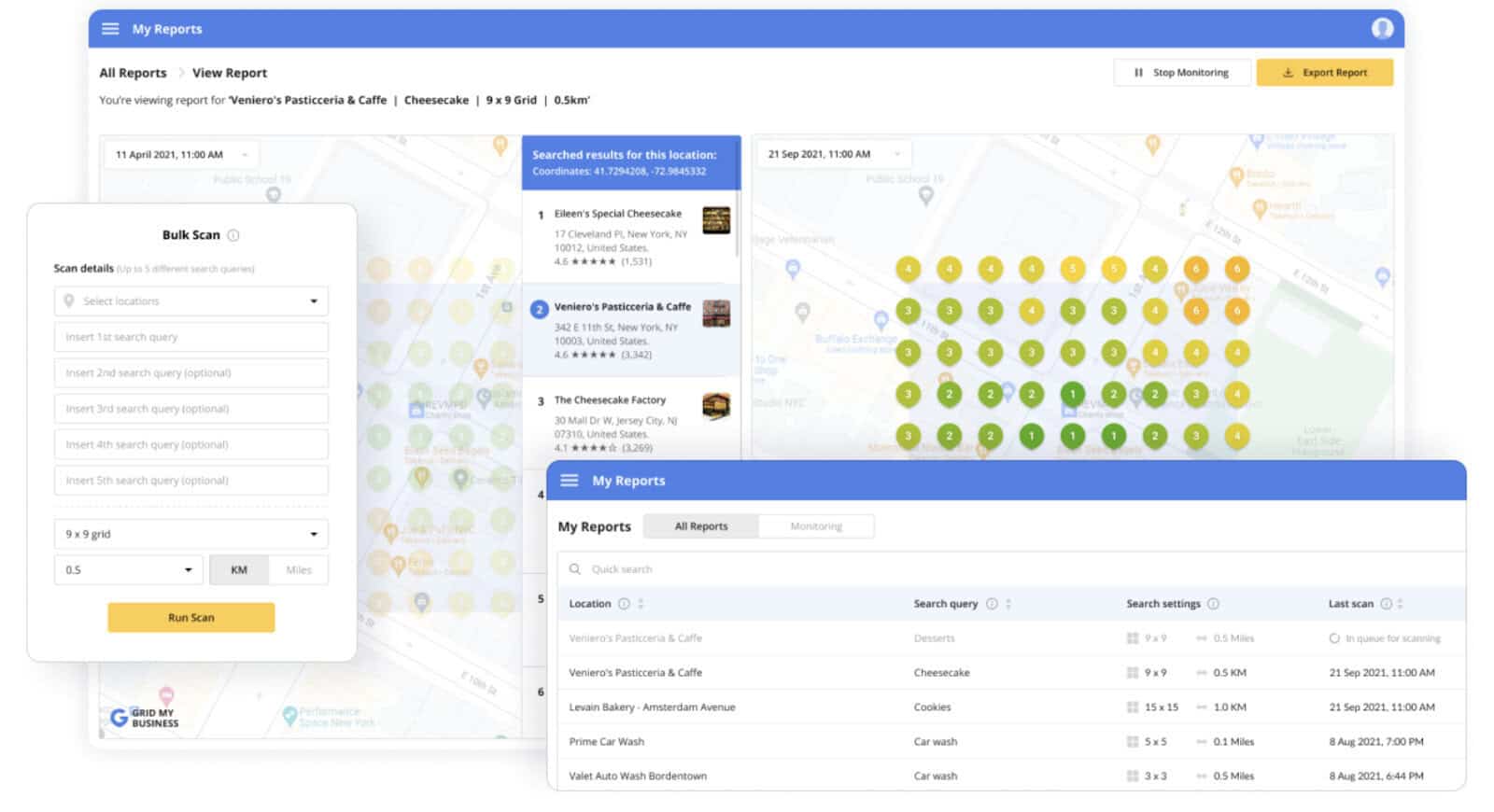
Grid My Business is a lightweight alternative to Local Falcon. It gives you a bird’s-eye view of rankings across a grid, with side-by-side comparisons and competitor tracking. Agencies like it for bulk scanning and white-label reporting.
Key features:
- Local rank grids and competitor tracking
- Bulk keyword analysis
- Scheduled scans every 3 days
- White-label reporting
- GMB integration
Pricing snapshot:
- Starter: Free
- Venture: $29/mo
- Agency: $69/mo
- Franchise: $89/mo
Which Tools Should You Pay Attention To?
Not every business needs the same stack.
If you’re a small business owner (SMB), focus on tools like Semrush, BrightLocal, and Moz Local since they’ll give you the essentials without overwhelming you.
Agencies juggling multiple clients should look at SE Ranking, Places Scout, and Local Falcon for their scalability and competitive insights.
And if you’re an enterprise brand managing dozens or hundreds of locations, you’ll probably get the most value from Yext or Synup.
FAQs About Local SEO Tools
Question: What’s the difference between local SEO and traditional SEO?
Answer: Local SEO focuses on optimizing for a specific geographic area, while traditional SEO is about ranking nationally or globally.
Question: Do I need more than one local SEO tool?
Answer: Often, yes. Many businesses use one all-in-one suite (like Semrush or BrightLocal), plus a rank tracker (like Local Falcon).
Question: What’s the most affordable local SEO tool?
Answer: For software, Semrush’s Local SEO toolkit starts at $30/month while BrightLocal starts at $39/mo. For free, Google Business Profile, Google Search Console, Google Analytics, and Google Trends are essential.
Question: How important are reviews for local SEO?
Answer: Reviews are critical. They impact both ranking and customer trust. Tools like Semrush, BrightLocal, and Moz Local help manage them.
Question: Are free tools enough for local SEO?
Answer: Free tools like GBP, Search Console, and Google Trends are a great start, but paid tools give you deeper insights and scalability.
I use a LOT of tools. Probably more than I need to. There are a few that are truly indispensable. I have a Semrush tab open EVERY day as I work. Keyword searches, technical audits, competitor analysis? It does it all. Try it out for free.
Conclusion: So Which Local SEO Tool is Best?
Local SEO is more competitive than ever, and with AI search reshaping discovery, businesses need tools that go beyond the basics.
For most businesses, Semrush Local SEO Toolkit is the best overall pick thanks to its all-in-one coverage, AI features, and pricing flexibility. BrightLocal is the best budget option, while Yext and SE Ranking shine for enterprises and agencies.
No matter which you choose, the real win is consistency: accurate listings, strong reviews, and visibility across maps and AI results.

